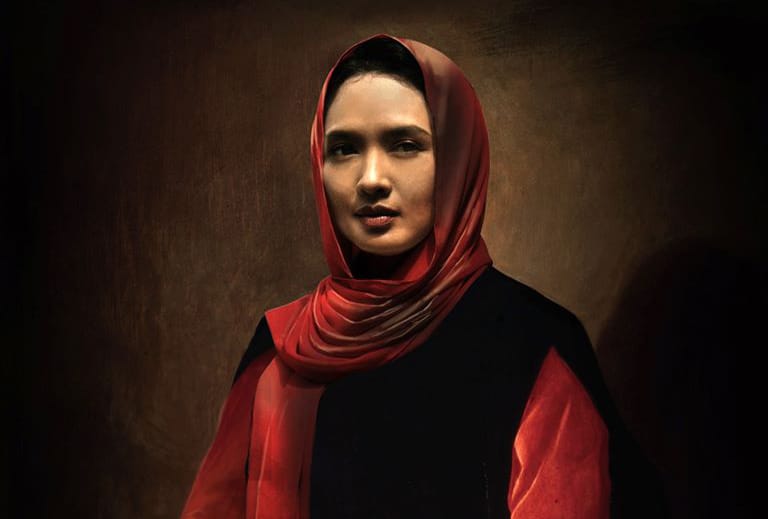It’s hard to find a dirty politician in Malaysian films. Since Independence, the narrative about politicians in the country has always been shrouded by a mantle of respect, glory and honour.
A facade maintained by the gatekeepers of Malaysian cinema, politicians in local movies are usually portrayed as selfless and righteous leaders of the people, rather than individuals susceptible to corruption of absolute power.
Yet, the facade fooled few of the populace as Malaysia recently dominated international news for staggering kleptocracy — its former Prime Minister, Najib Razak, and his wife face dozens of graft and money laundering charges but are still awaiting trial.
That status quo may have had a shake-up after the last General Election, when the ruling coalition that had stayed in power for the past 60 years fell (partly sparked by the people’s anger for said kleptocracy).
The twists and turns leading up to the downfall of a six-decade administration provided much fodder for filmmakers to either memorialise or write political cinematic history, but few had travelled down the unbeaten path. That is, until Daulat came along.
While Daulat‘s story is fictional, it breaks the mold in its portrayal of Malaysian politicians. This may explain why it was denied a theatrical release; Daulat was forced to find distribution elsewhere. It is now available for free on iflix, a Malaysian-born streaming service, in the (un)fortuitous timing when Malaysians were forced to stay in their homes due to the Coronavirus outbreak.
Daulat, which can be roughly translated to ‘power’ in English, pulls no punches. Every politician shown indulges in vices, as well as extremist, racist, or sexist rhetoric. They move money around for the benefit of their families — at the cost of their voters — and even commit murder to stay in or snatch away power. It is certainly refreshing, if a little disquieting, to actually watch on-screen politicians behave in the way that most Malaysians imagined or know them to be.
Let’s be clear: Daulat has problems. Many problems. Written in only two months, and made in less than half that amount of time, the cracks do show themselves through the on-the-nose dialogue (even when quoting Sun Tzu’s Art of War), the production value, and the inexperience of director Imran Sheik in pacing his feature debut. But the movie also has some sparks of brilliance.
SPOILERS AHEAD
So let’s set up the chessboard. The ruling political party MUNA had lost the general election. Hence, the party president, Hassan (Tony Eusoff), charged MUNA’s first female deputy president, Suri (Vanida Imran), to strategise a winning plan for the Malay-centric party to reclaim victory in the next general election.
She lays out her three-step plan; first, to secure the base voters from the conservative Muslim bloc by allying with the radical Islamist party Hizbul Muslimin (HM). Second, to win median liberal support through a puppet party that claims to fight for liberal values. Third, to sow discord among the ranks of the ruling Wawasan party by widening the gap between its party president, Malik (Jalaluddin Hassan), and his deputy, Ali (Zul Zamir). But in the fast-moving world of public opinion and realpolitik (and a good game of chess), opposition is to be expected.
To get the Islamist party to work with them, Suri has to gain the blessing of her counterpart and convince them that they are fighting on the same side through their shared religion and race. On the other hand, to build a liberal party under MUNA’s wings, Suri has to convince MUNA conservatives to see the larger picture outside of their ‘closed-minded racist and sexist’ values.
To achieve these, Suri’s weapon of choice is to build an image. After all, her idol, Niccolò Machiavelli, had said: “Everyone sees what you appear to be, few experience what you really are.” Suri may show her loyalty to MUNA, but no one, including the president Hassan, knows Suri’s eyes on the ultimate prize: the premiership. In the dark, she paves a path that leads to her final objective — which includes leveraging on Hassan’s daughter — and checkmates her unsuspecting president.
Suri also utilises her husband Idrus’ (Rashidi Ishak) media company to plant rumours and fake news. A good example of this is when an alleged report of HM and MUNA joining hands earned a positive response from their target demographic, giving Suri the bargaining chip she needed to convince the MUNA conservatives to accept HM’s radicialism, and removing any misgivings for the Islamists to work with a racial and corrupt party. She also weaponises media rumours that Malik would not hand over power to his deputy as promised, intensifying the power struggle within the ruling party that weakens them so severely that they lost the general election.
Admittedly, much of the plot movement and its execution leaves much to be desired. There are moments when Suri’s plans fall into place through plot contrivances and logical liberties. Not to mention, there is an oversimplification of how the political machine plays out (with a few notably absent institutions like the parliament, activists, and the royalty) in Malaysia. But credit is due for Daulat‘s writing in setting up the pieces.
Daulat‘s biggest impact, however, is not in its depiction of political characters, but what it means to us, the audience. The movie brings out our worst fears, that our politicians are truly Machiavellian, backroom dealing, and blackmailing minds who are only using us as a vehicle on their ride to power. It puts a mirror in front of us as much as to our politicians, forcing us to confront how elections are won by emotions (as Suri herself said), and our emotions are mainly influenced by what we see than what we know.
In the post-credit scene, Suri’s monologue serves as a wake-up call that our opinions are shaped by what we want to hear, not what is really happening. Malaysian politics was never short of publicity stunts, flammable statements, and media circuses, and most public discourses are built on events that are emotionally-charged rather than rational thinking.
Politics is still a lot of shadow play (or wayang, as we like to call them in the local parlance). It speaks to how much (or little) we know about what is going on behind-the-scenes, the promises made to be broken (another Machiavelli lesson: “The promise given was a necessity of the past: the word broken is a necessity of the present.”), and the shrewd mind it takes to survive in a divided political arena that Malaysians still cannot shake out from, even after voting the old ways out.
Indeed, around the same time that the movie was released, Malaysia saw its legitimately-elected government — barely two years old — dissolved behind closed doors due to a dramatic defection of over 30 members of parliament. A new government was installed in March without the people having a say, and mostly consists of politicians from the old bloc defeated in the previous general election. Appalled, much of the country were just beginning to realise their ignorance in how the game is truly played.
Although director Imran never could have foreseen these events, the latest twist in Malaysian politics has only given a chilling weight to Suri’s final words: “Kind leaders need to learn from the ruthless. Learn from them and never put them out of sight. I know you hate me regardless. But deep down, you know I’m right.”
Also published on Medium.

tortures himself with overthinking if he is overthinking the things he’s watching. Sometimes, some of that makes sense. Other times, he just wants to eat pop-corn and doesn’t want to think about it.



